(no subject)
Long Live McLaren
January 22 1946 - April 8 2010
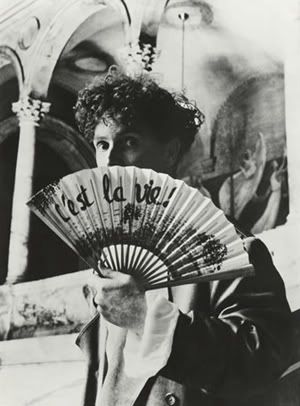
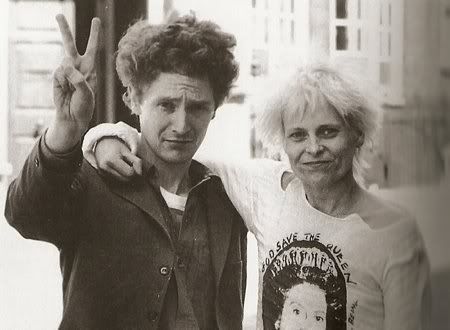
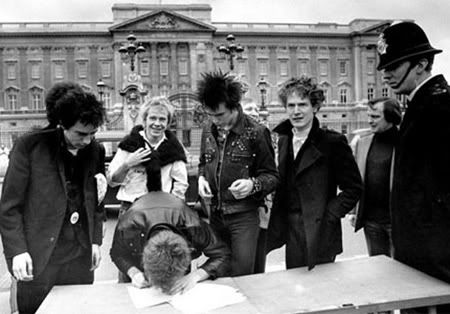
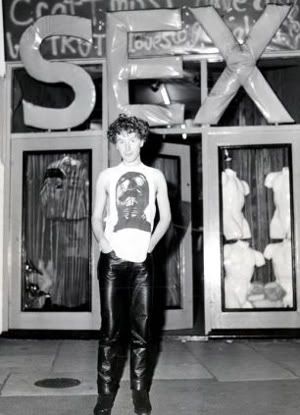
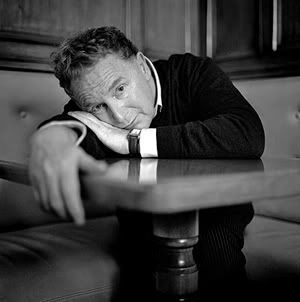
Malcolm McLaren, an impresario, recording artist and fashion designer who as manager of the Sex Pistols played a decisive role in creating the British punk movement, died on Thursday in Switzerland. He was 64.
The cause was mesothelioma, a cancer of the linings around organs, said Young Kim, his companion of many years. She said he had been under treatment at a Swiss hospital. He lived in Paris and New York.
Mr. McLaren, a former art student, found an outlet for his ideas about fashion, music and social provocation in the inchoate rock ’n’ roll scene of London in the early 1970s. Operating from the clothing boutique Sex, which he and the fashion designer Vivienne Westwood ran, he brought together four obscure musicians, called them the Sex Pistols and provided them with an attitude suited to Britain in decline: nihilistic rage, expressed at high volume in songs like “Anarchy in the U.K.” and the vitriolic anti-anthem “God Save the Queen.”
Mr. McLaren was a keen student of the French Situationists, who believed in staging absurdist or provocative incidents as a spur to social change. He arranged for the Sex Pistols to sign their contract with A&M Records outside Buckingham Palace and organized a performance of “God Save the Queen” on the Thames, outside the Houses of Parliament, on a boat named the Queen Elizabeth. The police quickly intervened, ratifying the group’s incendiary reputation.
Until their breakup in January 1978, the Sex Pistols epitomized the look, the sound and the attitude of British punk. All three came, in large measure, from Mr. McLaren’s restless brain.
Malcolm Robert Andrew McLaren was born on Jan. 22, 1946, in London and was raised mostly by a wealthy grandmother. He attended more than half a dozen art schools. At none of them did things go smoothly. He was expelled from Chiswick Polytechnic, and the Croydon College of Art tried to have him transferred to a mental institution.
He terminated his education, such as it was, in 1971 at Goldsmiths’ College in London, but not before completing a series of paintings titled “I Will Be So Bad.”
In 1972 Mr. McLaren and Ms. Westwood took over a store on King’s Road in Chelsea called Let It Rock and began selling hipster Teddy boy fashions. The business was run along unconventional lines.
In a 1997 article for The New Yorker, Mr. McLaren recalled, “We set out to make an environment where we could truthfully run wild.” On most days the shop did not open until the evening and closed within a few hours. The goal, Mr. McLaren wrote, “was to sell nothing at all.”
After the New York Dolls visited the store, renamed Too Fast to Live, Too Young to Die, Mr. McLaren followed the group to the United States and became its manager. He dressed the band members in red clothing based on the Soviet flag, placed politically provocative slogans onstage and presided over their swift demise.
Back in London, Mr. McLaren, now at Sex, took an interest in a group called the Strand (later the Swankers), three of whose members formed the nucleus of the original Sex Pistols. The group gave its first performance at St. Martin’s College on Nov. 6, 1975 - hostile audience reaction caused the players to leave the stage after two songs - and soon emerged as the leader of the punk scene. Reliably or not, Mr. McLaren explained his strategy for packaging and selling the band in the 1980 film “The Great Rock ’n’ Roll Swindle.”
“Anarchy in the U.K.” and “God Save the Queen” (whose release was timed to coincide with Queen Elizabeth II’s silver jubilee) rose to the upper rungs of the pop charts in Britain, and the group’s only album, “Never Mind the Bollocks: Here’s the Sex Pistols,” reached No. 1 in 1977. On the band’s first American tour, in January 1978, John Lydon, the lead singer known as Johnny Rotten, walked offstage at the Winterland Ballroom in San Francisco, and the Sex Pistols dissolved.
Mr. McLaren briefly managed Adam and the Ants and then, with several ex-Ants, created Bow Wow Wow around a teenage Burmese singer, Annabella Lwin. The group recorded the hits “Go Wild in the Country” and “I Want Candy.” Through his clothing store, now called World’s End, he sold Ant and Bow Wow Wow fashions.
He went on to record his own music. His album “Duck Rock” (1983), a blend of world music and hip-hop, generated the hit singles “Buffalo Gals” and “Double Dutch.”
“I’m much more of a magician than a musician,” he told The Globe and Mail of Toronto in 1985. “I steal other people’s songs and try to make them better.”
In 1984 Mr. McLaren released the album “Fans,” a mixture of opera and urban music, which included the hit single “Madame Butterfly.” “Waltz Darling” (1989), “Paris” (1994) and other albums followed.
In recent years his name was linked with film, television and radio projects, most of them never realized, although he did help produce the film “Fast Food Nation” and presented two series for BBC2 radio, “Malcolm McLaren’s Musical Map of London” and “Malcolm McLaren’s Life and Times in L.A.”
He is survived by his son with Ms. Westwood, Joseph Corré, a founder of the lingerie company Agent Provocateur; a brother, Stuart Edwards; and a grandchild.
Mr. McLaren spent much of the last 30 years trying to explain punk. “I never thought the Sex Pistols would be any good,” he told The Times of London last year. “But it didn’t matter if they were bad.”
January 22 1946 - April 8 2010





Malcolm McLaren, an impresario, recording artist and fashion designer who as manager of the Sex Pistols played a decisive role in creating the British punk movement, died on Thursday in Switzerland. He was 64.
The cause was mesothelioma, a cancer of the linings around organs, said Young Kim, his companion of many years. She said he had been under treatment at a Swiss hospital. He lived in Paris and New York.
Mr. McLaren, a former art student, found an outlet for his ideas about fashion, music and social provocation in the inchoate rock ’n’ roll scene of London in the early 1970s. Operating from the clothing boutique Sex, which he and the fashion designer Vivienne Westwood ran, he brought together four obscure musicians, called them the Sex Pistols and provided them with an attitude suited to Britain in decline: nihilistic rage, expressed at high volume in songs like “Anarchy in the U.K.” and the vitriolic anti-anthem “God Save the Queen.”
Mr. McLaren was a keen student of the French Situationists, who believed in staging absurdist or provocative incidents as a spur to social change. He arranged for the Sex Pistols to sign their contract with A&M Records outside Buckingham Palace and organized a performance of “God Save the Queen” on the Thames, outside the Houses of Parliament, on a boat named the Queen Elizabeth. The police quickly intervened, ratifying the group’s incendiary reputation.
Until their breakup in January 1978, the Sex Pistols epitomized the look, the sound and the attitude of British punk. All three came, in large measure, from Mr. McLaren’s restless brain.
Malcolm Robert Andrew McLaren was born on Jan. 22, 1946, in London and was raised mostly by a wealthy grandmother. He attended more than half a dozen art schools. At none of them did things go smoothly. He was expelled from Chiswick Polytechnic, and the Croydon College of Art tried to have him transferred to a mental institution.
He terminated his education, such as it was, in 1971 at Goldsmiths’ College in London, but not before completing a series of paintings titled “I Will Be So Bad.”
In 1972 Mr. McLaren and Ms. Westwood took over a store on King’s Road in Chelsea called Let It Rock and began selling hipster Teddy boy fashions. The business was run along unconventional lines.
In a 1997 article for The New Yorker, Mr. McLaren recalled, “We set out to make an environment where we could truthfully run wild.” On most days the shop did not open until the evening and closed within a few hours. The goal, Mr. McLaren wrote, “was to sell nothing at all.”
After the New York Dolls visited the store, renamed Too Fast to Live, Too Young to Die, Mr. McLaren followed the group to the United States and became its manager. He dressed the band members in red clothing based on the Soviet flag, placed politically provocative slogans onstage and presided over their swift demise.
Back in London, Mr. McLaren, now at Sex, took an interest in a group called the Strand (later the Swankers), three of whose members formed the nucleus of the original Sex Pistols. The group gave its first performance at St. Martin’s College on Nov. 6, 1975 - hostile audience reaction caused the players to leave the stage after two songs - and soon emerged as the leader of the punk scene. Reliably or not, Mr. McLaren explained his strategy for packaging and selling the band in the 1980 film “The Great Rock ’n’ Roll Swindle.”
“Anarchy in the U.K.” and “God Save the Queen” (whose release was timed to coincide with Queen Elizabeth II’s silver jubilee) rose to the upper rungs of the pop charts in Britain, and the group’s only album, “Never Mind the Bollocks: Here’s the Sex Pistols,” reached No. 1 in 1977. On the band’s first American tour, in January 1978, John Lydon, the lead singer known as Johnny Rotten, walked offstage at the Winterland Ballroom in San Francisco, and the Sex Pistols dissolved.
Mr. McLaren briefly managed Adam and the Ants and then, with several ex-Ants, created Bow Wow Wow around a teenage Burmese singer, Annabella Lwin. The group recorded the hits “Go Wild in the Country” and “I Want Candy.” Through his clothing store, now called World’s End, he sold Ant and Bow Wow Wow fashions.
He went on to record his own music. His album “Duck Rock” (1983), a blend of world music and hip-hop, generated the hit singles “Buffalo Gals” and “Double Dutch.”
“I’m much more of a magician than a musician,” he told The Globe and Mail of Toronto in 1985. “I steal other people’s songs and try to make them better.”
In 1984 Mr. McLaren released the album “Fans,” a mixture of opera and urban music, which included the hit single “Madame Butterfly.” “Waltz Darling” (1989), “Paris” (1994) and other albums followed.
In recent years his name was linked with film, television and radio projects, most of them never realized, although he did help produce the film “Fast Food Nation” and presented two series for BBC2 radio, “Malcolm McLaren’s Musical Map of London” and “Malcolm McLaren’s Life and Times in L.A.”
He is survived by his son with Ms. Westwood, Joseph Corré, a founder of the lingerie company Agent Provocateur; a brother, Stuart Edwards; and a grandchild.
Mr. McLaren spent much of the last 30 years trying to explain punk. “I never thought the Sex Pistols would be any good,” he told The Times of London last year. “But it didn’t matter if they were bad.”